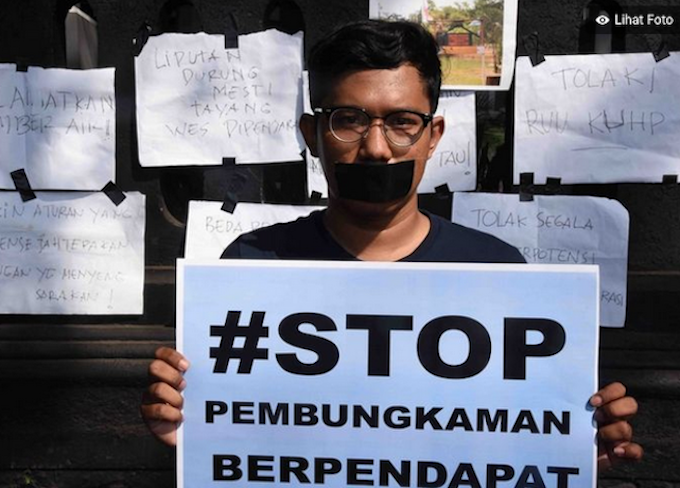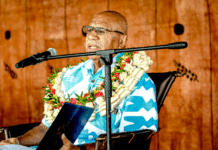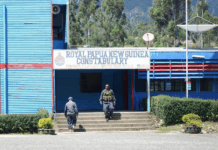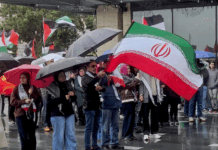
By Dian Erika Nugraheny in Jakarta
The Southeast Asia Freedom of Expression Network (SAFEnet) recorded 147 digital attacks in Indonesia during 2020, the majority of which targeted groups that are often critical of the government such as academics, journalists and activists.
“Throughout 2020 we found 147 incidents of digital attacks. As many as 85 percent of attacks were directed at critical groups. One of which was our academic colleagues,” said SAFEnet executive director Damar Juniarto during a discussion titled Freedom of Expression, the Law and the Dynamics of Development last week.
Juniarto said that journalists often experience doxing – the disclosure and dissemination of private data. Activists meanwhile experienced far worse incidents.
Juniarto gave as an example cases in Papua where activists have had their social media accounts taken over by unknown parties. Others have received food deliveries from online delivery apps which were never ordered.
“This kind of situation never occurred during the period of the previous (administration)”, said Juniarto.
Also speaking at the discussion, Airlangga University Faculty of Law lecturer Herlambang P Wiratraman said that the silencing of critics by the authorities had become increasingly complex.
Attempts to gag critics tended to take the form of digital attacks such as doxing, or disclosing and disseminating private data. On the other hand, efforts by censors, persecution and the jailing of critics were still taking place.
Producing hoaxes
“Things today are complex. In concert with technological development the method [used] to silence critics of the organisers of power isn’t by blocking access but through attacks by irrelevant information,” said Dr Wiratraman.
In other words, explained Dr Wiratraman, silencing critics in the digital era was also done by producing hoaxes. And the more complex the silencing of the media becomes the more it influenced the retreat of democracy in Indonesia.
Dr Wiratraman gave an example of when epidemiology expert Dr Pandu Riono from the University of Indonesia criticised the development of covid-19 drugs after which his social media account was hacked.
Then there was the case of Gajah Mada University student and resource persons in a study of the constitution in relation to impeaching the president.
“What became a question mark was that the committee, the discussion organisers could be stopped and [the discussion] closed down through digital attacks,” he said.
“They were even terrorised by means of sending food which hadn’t been ordered using an online motorcycle taxi, visited by unknown individuals, getting door-knocked,” he continued.
Nevertheless, Dr Wiratraman said that these two incidents were not surprising given that similar incidents had happened in the years before.
Journalists arrest
He also touched on the arrest of journalists and documentary film director Dandhy Laksono on the night of September 26, 2019.
Laksono was questioned by investigators from the Metro Jaya regional police special crimes detective directorate over alleged hate speech.
He was bombarded by 14 questions about a tweet on his Twitter account related to Papua and Wamena on September 23, 2019.
“Such as when Mas [Brother] Dandhy Laksono was brought in by police”, said Dr Wiratraman.
“Indeed digital attacks as well as attacks on campus have been unrelenting and even recorded since 2015”, he added.
Translated by James Balowski of IndoLeft News. The original title of the article was “Mayoritas Serangan Digital Menyasar Akademisi, Jurnalis dan Aktivis”.














































